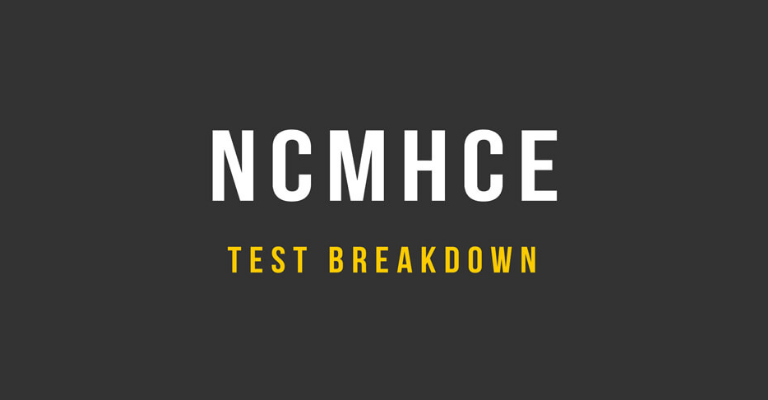Well, it’s been a while since I’ve made a post. For the past several months I was focusing all my extra time (and brain power) to studying for the National Clinical Mental Health Counseling Exam (NCMHCE). (For those of you who are not familiar – the NCMHCE is a nationally used exam that is used by licensure boards to become fully licensed as a Professional Counselor.)
The good news, I passed and am now fully licensed!!
So, in the pursuit of sharing information with fellow counselors — I wanted to share the tips and tricks I learned along the way, and what was helpful.
1. Getting a Study Guide: I decided to go with a website called counselingexam.com. The website is a pay by the week site – but gives you access to several practice tests and general information about counseling in general. I paid extra for the study guide (offered when you check out). Truthfully, it was helpful in some regards. Small aspects of the test (difference between short term, intermediate, and long term goals; defining level of functioning, etc) were all discussed in detail. It helped shed light on these often confusing areas. Besides that — nothing really of value. It goes into great detail about diagnoses (but hopefully you have a DSM-V for that) as well as the various theories (but hopefully you have your old theories book for that). Over all, the study guide maybe worth it but I did not think it to be absolutely necessary.
2. Practice Scenarios: This right here — this is what helped me the most. Here, I learned what the scenarios were trying to ask and what answer to choose. My tip – less is more when answering. For example: if the scenario is presenting a client with symptoms that sound like OCD, then it makes sense that you might gather information about obsessions and compulsions, time duration, insight, etc. If you select questions regarding issues related to trauma, alcohol use, family constellation, nightmares, etc. then you are at risk for losing points – as they are not related to the question at hand. Practice, practice, practice.
The website I mentioned earlier literally has hundreds you can go through. Be warned: some of them have wrong answers though – which I did find unprofessional since I was paying for them.
3: Youtube: Believe it or not, several study resources are on Youtube and are of great help. They are free and have important information regarding the information gathering and decision making for the test.
4: Use your head: One strategy I used (which I admittedly for from another colleague) was to “use math and common sense” when choosing the answers. During the actual exam, you DO NOT see which answers you get incorrect (unlike the practice tests). When presenting with a problem with 8 answers to choose from, and you have already chosen 4 really good ones – it may be best to stop. Take a few moments and really decide if they information is CRUCIAL or something that would be unnecessary.
5: Take breaks: The test is scheduled for three hours — use that to your advantage. There is no glory is saying you took the test in an hour (you’d more than likely fail) and you will not get extra credit if you finish early.
Through ten scenarios, with about a dozen questions each, the test questions/scenarios get blurred and start to run together. When you find yourself getting hazy, not remembering the scenario, or just “not caring” then that’s the big signal it’s time to take a break. I gave myself two 12 minute breaks and they were all worth it. Bring some water and a light snack, and rest. Your brain will be able to recharge in no time.
